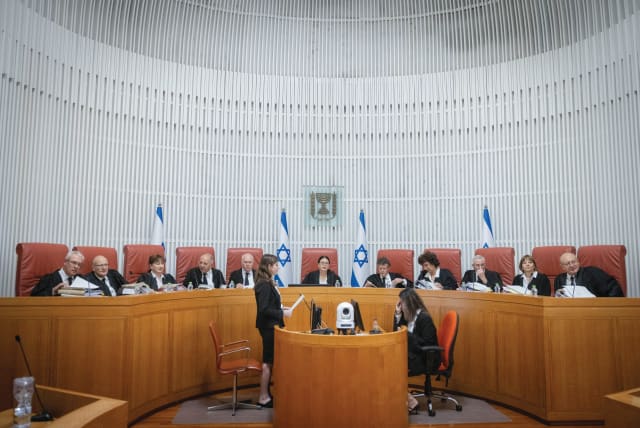Israel's Supreme Court against using terrorist Walid Daqqah's body as hostage deal bargaining chip

Israel's Supreme Court defied the state's stance on retaining Walid Daqqah's body, citing humanitarian and legal concerns despite security justifications presented.
The Supreme Court did not yield to the state's response to a petition filed by the Adalah organization on behalf of the family of Walid Daqqah, and following a hearing held on Thursday. The court also instructed the state authorities, "To provide reasons why the deceased's body should not be released to the petitioners for immediate burial in Baqa al-Gharbiyye, according to the religious customs and beliefs of his family."
Despite the state's detailed response before the hearing to the justices Itzhak Amit and Alex Stein, they have given the state an additional month to clarify its position, and only then will they proceed with the process.
Daqqah was convicted in 1987 for kidnapping and murdering soldier Moshe Tamam. As a leader in the Popular Front for the Liberation of Palestine, he ordered the soldier's body to be sent to Syria for bargaining purposes. Daqqah – who was never affiliated with Hamas - passed away on April 7 of this year.
Even after the war, the state continued its policy not to delay the burial of Israeli terrorists who died in prison. However, the state now claims that "the case of the terrorist and Walid Daqqah is exceptional" - both because of the difficult situation created by the Israelis held hostage in the Gaza Strip and because of Daqqah's identity.
State response
According to the state's response, it has decided to retain Daqqah's body to use it as leverage in negotiations with Hamas. "The decision to hold the terrorist's body was made based on hostages and missing persons considerations, which carry special and significant weight at this time," the state conveyed in its statement.
"The decision was made against the backdrop of the current security situation and based on a personal assessment regarding the value of the specific body to achieve the primary objective."
In its response, the state emphasized that the Supreme Court has no grounds to intervene in the Defense Minister's decision, which was approved by the security cabinet. "While this represents a departure from the policy of not delaying the burial of Israeli civilian terrorists for this purpose - it is a measured and reasonable decision, reflecting a proper balance among all considerations and circumstances involved."
"Both the primary objective of the issue at hand and the other security and political considerations, as well as, on the other hand, the respect for the dignity of the deceased and his family in this case." Despite this, the Supreme Court judges did not yield to the state's response and ordered the return of Daqqah's body.
The Adalah Legal Center representing the appellants stated, "The Supreme Court's decision is requested, given the fact that the state is attempting to retroactively impose an inhumane decision that is inherently unauthorized and violates the rule of law while trampling on the fundamental rights of the deceased and his family."
"The Court noted during the hearing that Walid Daqqah has already served his sentence for the charges that constitute the basis for the current state's intervention. It is regrettable that, in the absence of proper legal justifications, such an excessively prolonged time was granted to the state to formulate its response to the court, thus continuing to prolong the suffering of the appellants."
Jerusalem Post Store
`; document.getElementById("linkPremium").innerHTML = cont; var divWithLink = document.getElementById("premium-link"); if (divWithLink !== null && divWithLink !== 'undefined') { divWithLink.style.border = "solid 1px #cb0f3e"; divWithLink.style.textAlign = "center"; divWithLink.style.marginBottom = "15px"; divWithLink.style.marginTop = "15px"; divWithLink.style.width = "100%"; divWithLink.style.backgroundColor = "#122952"; divWithLink.style.color = "#ffffff"; divWithLink.style.lineHeight = "1.5"; } } (function (v, i) { });

